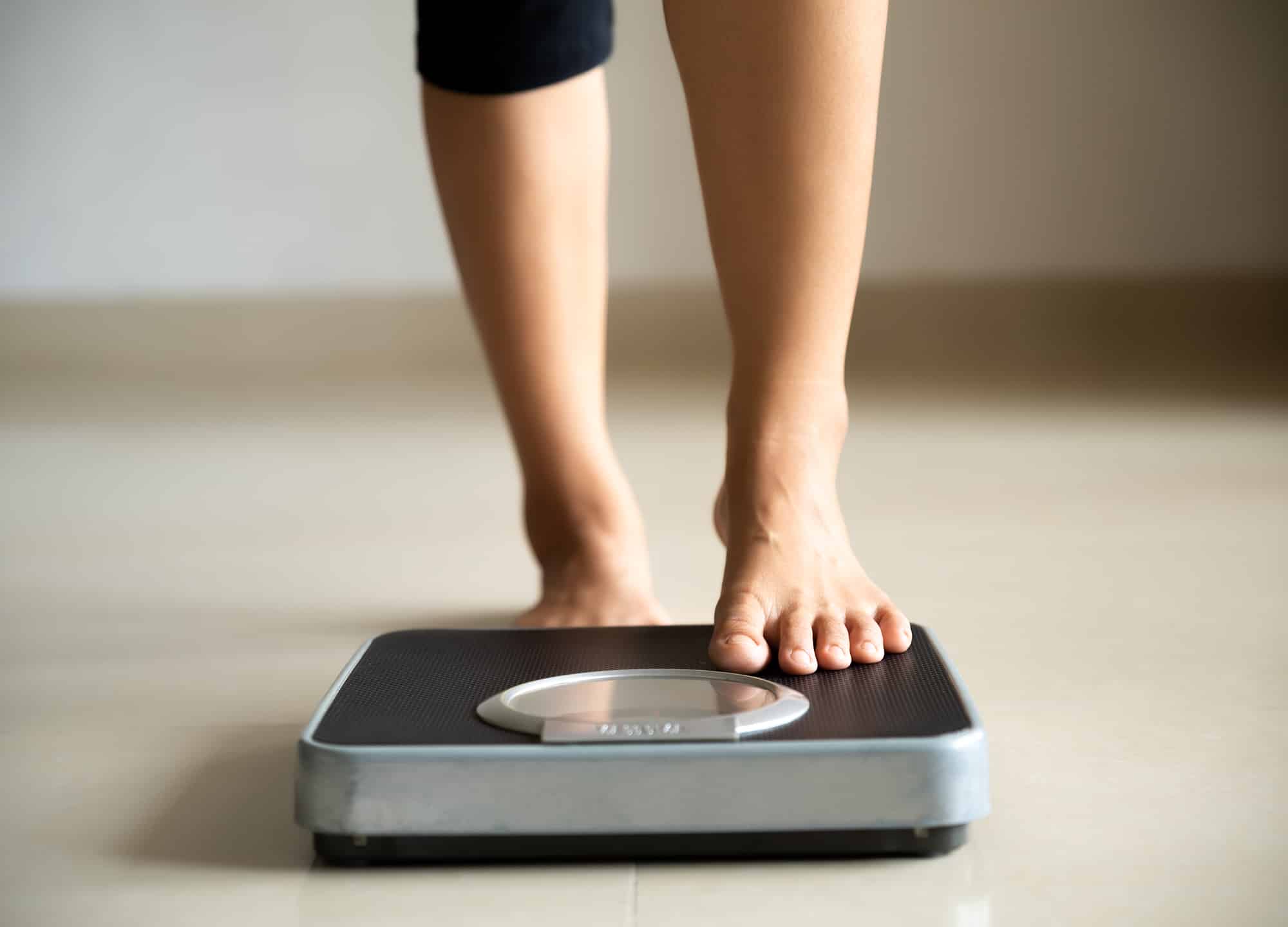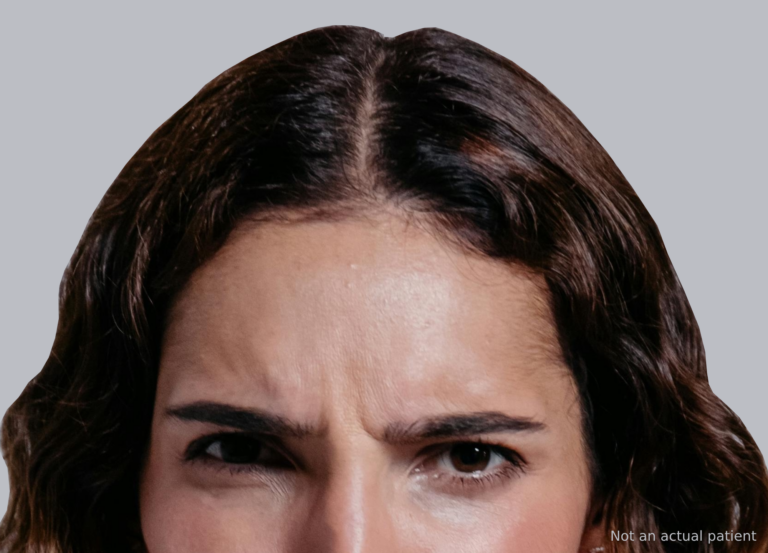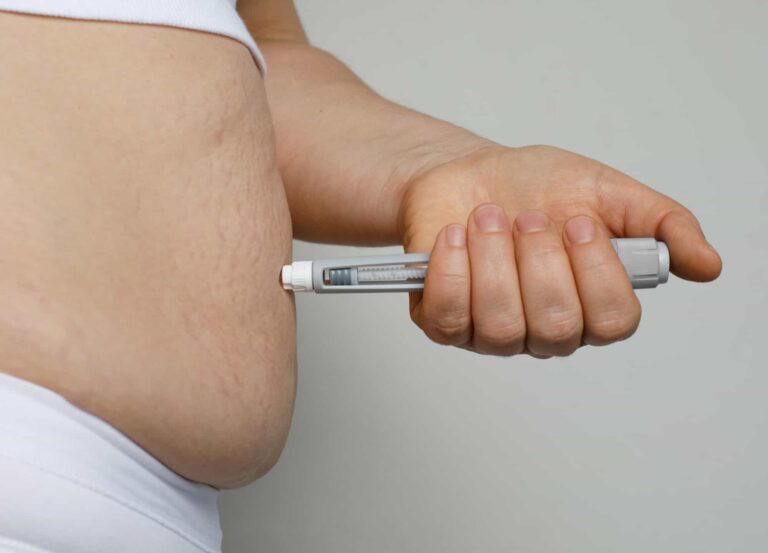On the day of her breast augmentation surgery last year, Shannon, 28, couldn’t stop crying. When her plastic surgeon came into the room to mark her up, she told him she was scared and didn’t want to go through with the procedure. “He told me it was a happy time and I shouldn’t worry, because I’d be glad I did it afterward,” she says.
What he didn’t know was that Shannon has been struggling with anorexia, bulimia, and depression since she was 12 years old and was hoping breast implants would cure her eating disorder. “My breasts were one of the things I hated about my body. In my mind, I figured if my chest was bigger, then I wouldn’t be as strict with myself about my stomach area. I’ve always wanted my stomach to be as flat as possible.”
But the surgery only made things worse: “I was so depressed, I cried for two weeks straight after[ward]—then I started throwing up again, which displaced my left breast implant, so now it hangs lower than it should.” Recently, she met with a different plastic surgeon to discuss an explant, and this time around, she disclosed her ED. “He said I should have mentioned it to my original doctor, because my body didn’t have the proper nutrition or tissue to support my implants and keep them where they should be,” she says. “Before he’ll take them out, I have to get my ED under control, so I’m starting therapy and I want to get better.”
A desire for control is at the root of eating disorders, and it’s also what makes cosmetic surgery so enticing to those with a history of anorexia, bulimia, or orthorexia. Depending on where you are in your recovery, deciding to change the size of your breasts or your inner thighs can be empowering—or completely devastating. That’s why plastic surgeons say it’s so crucial to be honest about your ED on your initial intake form and during your consultation. “Doctors are professionals, and we are trained not to be judgmental,” says Dr. Melissa Doft, a board-certified plastic surgeon in New York City. “This information is critical as to how you heal after the surgery and, potentially, in understanding what is motivating you to undergo surgery.”
If the fear is that a doctor will immediately turn you away once you reveal a past ED, Dr. Doft assures that this generally isn’t the case and makes clear the distinction between EDs and body dysmorphic disorder: “With BDD, the patient often will focus on one aspect of their body and attribute all their anxiety and troubles to that part. But operating on that part of their body often will not satisfy the dysmorphia, and patients will seek multiple surgeries. I think many surgeons will shy away from a patient who has body dysmorphia, as they know the outcome will not be a happy patient. As long as a patient has a normal nutritional status and is not undergoing active treatment, many surgeons will operate on a patient with a history of an eating disorder.”
Related: 5 Common Reasons Plastic Surgeons Will Refuse to Operate On You
Issues, both mental and medical, arise when patients don’t mention having a current ED. “Elective surgical procedures on those with active, untreated eating disorders can be dangerous,” says Dr. Lara Devgan, a board-certified plastic surgeon in New York City and RealSelf’s chief medical editor. “Eating disorders can affect electrolyte balance, reepithelialization of incisions, duration of recovery, and overall metabolic health. They can increase the risk of wound healing problems and even potentially fatal cardiac arrhythmias.”
Two of the most critical aspects of recovery—proper nutrition and hiatus from exercise—are difficult requirements to meet if you’ve recovered from an ED, and nearly impossible if you’re still in the throes of one. “To heal properly, it’s important to have an increased amount of protein,” notes Dr. Doft. Then you need to keep it down. “Taking laxatives and vomiting can change your electrolytes, which can also be affected by fluid shifts that occur during surgery. Both can make you dehydrated, which can lead to an increased risk of deep vein thrombosis, dizziness, and hypotension. Vomiting can also increase intra-abdominal pressure, which can lead to breaking sutures and affecting the results of surgery,” she says.
Kat, 26, knows firsthand how triggering a period of forced rest can be post-op. She was in medical school when she developed orthorexia and, soon after, bulimia. “I was humbled when I got to med school and everyone around me was so smart. I knew I wasn’t going to be the smartest, so I wanted to be the most in shape. I got very into fitness and eating healthy [at the beginning], but then you start going through 14-hour shifts where you barely get to eat or work out. It messes up your hunger cues, so you go home and binge, then you feel crappy and purge.” During that time, she went for a breast augmentation consultation with Dr. Jerome Edelstein, a plastic surgeon in Toronto. “He told me, ‘I think that you should wait until you’re in a better place, because this is just added stress for you.’ It really made a difference to me. He was concerned about me struggling with the idea of not exercising for three months and how the recovery process could trigger me.”
At the end of med school, Kat says she “wasn’t functioning and was struggling to get through every day of a clerkship,” so she asked her general doctor for a referral to an outpatient eating disorder program. Once she felt stable in her recovery and “more relaxed about exercise,” she went back to Dr. Edelstein for surgery. “[Not being able to work out] was actually a very interesting and beneficial mind game during recovery. I had to find other ways to deal with my anxiety, so I went for a lot of walks. It changed the way I saw exercise, because I didn’t really gain weight. I went through the process, followed instructions, and nothing bad happened.” The breast augmentation, she says, “not only helped with my body image, but it made me much more forgiving [of] myself if I miss a workout or take rest days.”
Eating disorder or not, we’ve all fallen prey to the idea that altering the physical will somehow fix the emotional—and how could we not, when it’s sold to us every day, everywhere we look? Spend money on the new bag, the new shoes, the new breasts, and you’ll finally feel whole. “In the wrong headspace, it seems perfectly justifiable to starve yourself to get to a number on a scale at any cost, and similarly, in the wrong headspace it can seem like surgery to ‘fix’ something you are convinced is ‘bad’ will be a step toward contentment. In the wrong headspace, you will never reach contentment,” says Mandy, 29, who struggled with anorexia and bulimia in her teenage years and got a breast augmentation this past November.
It’s a lesson Shannon learned the hard way. She regrets her implants, but maybe, she says, she won’t want to explant them once she gets better. “I could change my mind and be happy with them, I’m not sure, but I wish I had gone to therapy before doing this.”
After waiting nearly a decade for her surgery, Mandy’s best advice to anyone struggling with an ED while also considering plastic surgery is to take your time. “I promise you this—when you stick with your body long enough to go from hating it to liking it to loving it to needing to protect it at all costs, that is when you are in the right headspace to do any f*cking cosmetic procedure your heart desires. I am so incredibly happy that I waited until I was financially secure enough, that I channeled my obsessive nature into my research on the right doctor, and that I waited until I knew for a fact this was not a procedure meant to put a band-aid on a deep wound I wasn’t already ready and willing to confront and heal on a mental level.”











